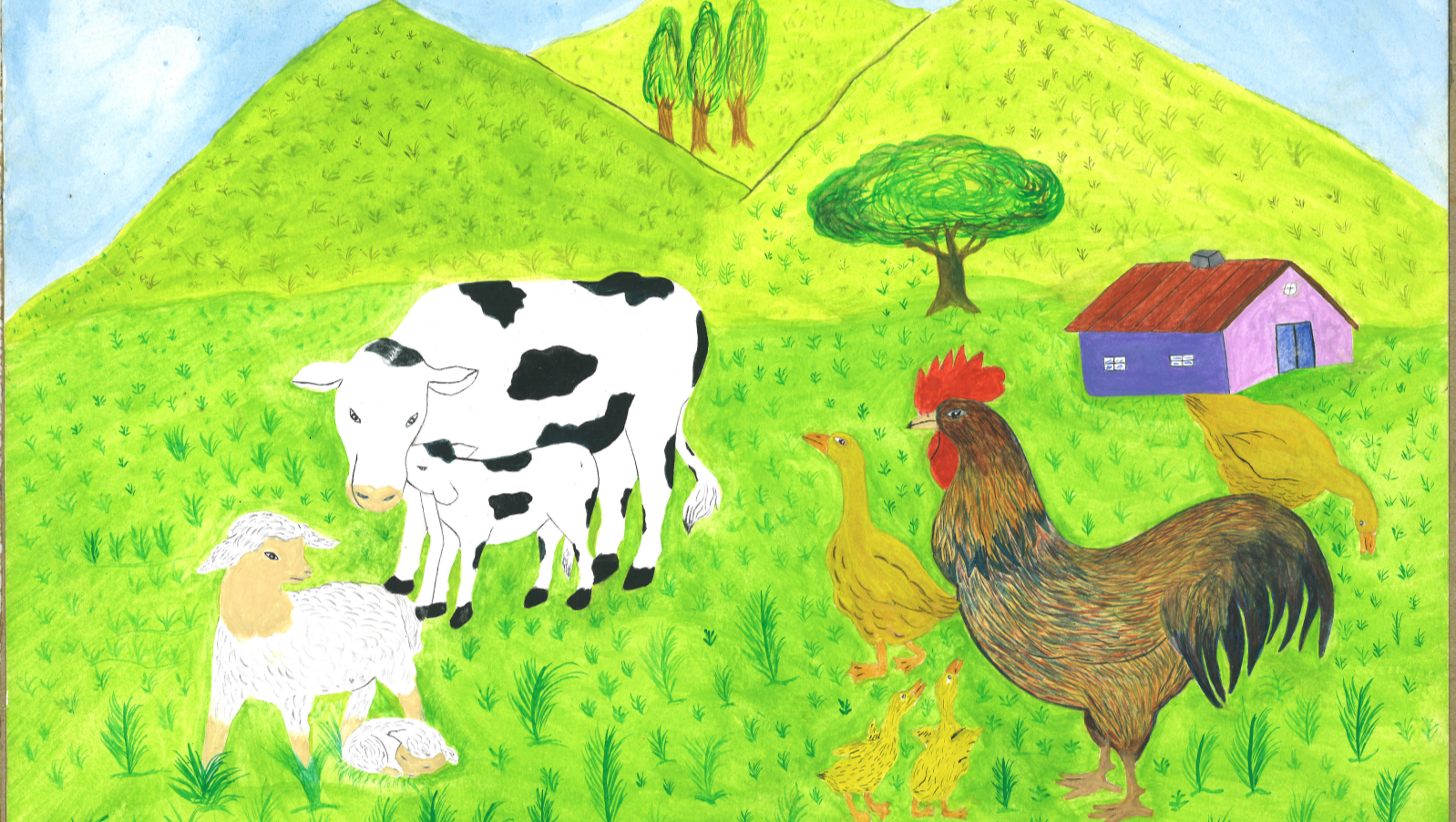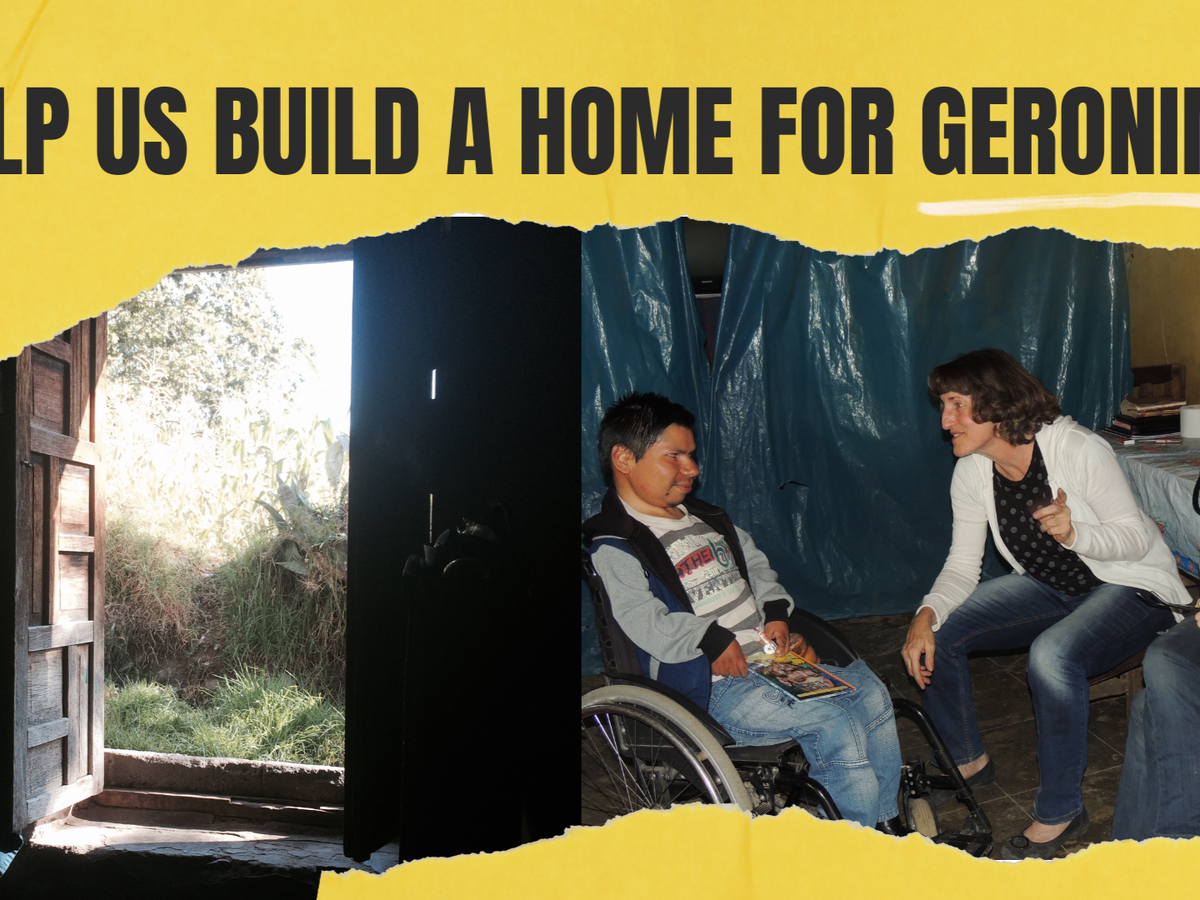In 2016, I was visiting Peru with my parents while my mom wrote a book about a mission hospital. One day during our visit, I joined my mom to interview hospital co-founder Dr. Martina. Looking for good stories to include in her book, my mom asked, “Who’s a patient that has impacted you the most?”
Martina’s voice lowered to an almost-whisper. “There is one boy… his name is Geronimo.”
Martina told us that when Geronimo was four, he developed juvenile arthritis. Sadly, Geronimo spent his childhood stuck at home while his family worked in the fields, never receiving much-needed treatment.
“I heard about him from one of the locals,” Martina said. “I remember walking into his house and there he was, sitting in the corner on the stairs. He was coloring.” She smiled, remembering.
But by that point — Geronimo was a teenager — the damage was irreversible. “He couldn’t walk at all,” she said, her smile gone. “His hands were completely crippled and his knees were both dislocated and stuck like that.” She held her arms in front of her, mimicking a gruesome angle. I winced, remembering the times I’d dislocated my kneecaps as a teen; the intense searing pain; how my mind had done loops trying to comprehend what my knee was doing over on the side of my leg. The thought of them staying that way… My stomach churned.
"He loves to paint," she said, her face lighting up again. "He has a natural talent. In fact, we have some for sale in the hospital shop."
My mother had been captivated throughout the entire conversation, jotting down notes and asking lots of questions. When Martina invited her to meet Geronimo, my mother's eyes widened with excitement, as if she had just been granted an audience with a celebrity.
Martina turned to me and added, "You should come with us."

I grabbed onto my seat as we jostled along, our bodies and Martina’s truck bouncing over rocks and potholes. Finally Martina announced, “We’re here!”
I didn’t see a house. We had stopped between a stream and the edge of an empty field. I glared in Martina’s direction. She knew I had CMT and that unpaved walking was hard for me — but had apparently decided to ignore this. But, already committed, I got out of the car to follow Martina and my parents who were heading toward the stream.
“How do we get around it?” I asked.
“We have to cross it,” said Martina.
“Is there, like, a bridge?” I looked at the rushing water, the jagged unstable rocks and slanted earth.
“Nope! Don’t worry, I’ll help.”
I wanted to smack the sweet smile off of her face and tell her she could cross her stream by herself. Instead, I spent the next several minutes climbing over giant rocks and getting covered in mud while I crossed the small yet terrifying stream. Martina helped, but she was not the slightest bit apologetic about this turn of events — she’d known all along, back when she’d smiled sweetly at me and said, “You should come too.”

Across the stream was a small house at the end of a dirt path. “We’re here!” Martina exclaimed, leading the way inside through a low door.
Once inside, I couldn’t see anything. Disoriented and off balance, I felt a tinge of primordial fear, unsure what I would see once my eyes had adjusted to the darkness.
I hadn’t expected it to be dark.
After several seconds I saw him. A small man seated in a wheelchair, just a few yards in front of me. Geronimo.

“Hola, mucho gusto,” I said. He smiled warmly and held out his hand. His fingers were curled, like mine. Geronimo didn’t speak English, but Martina translated as my mom asked him about his life and I took in my surroundings. The room was sparse, and the walls, once yellow, tinged with gray from years of dirt. All of the windows were boarded shut, leaving the house completely dark, except for the burst of light streaming in through the front door. I heard my dad ask Martina about the windows, about why they would shut out the light; she said it was to manage the heat. My dad took my hand into his and held it, avoiding my eyes.

So this door was the only source of light, and it hadn’t even been open when we arrived. I knew that there was no way Geronimo could cross that threshold, or the stream, or get down that rock-filled road in a wheelchair by himself. He sat mere feet away from one of the most beautiful views in the world, and he couldn’t go out into the light.
I’d been confined to a wheelchair before, had been unable to participate in activities because I wasn’t physically able or was too scared to try. In all of these situations I had felt hopeless, and my inner world was dark. I couldn’t imagine how full of darkness I would feel if my physical world were dark, too. If I couldn’t get out into the daylight.
**
Later that night my dad walked into my bedroom. “I have something to show you,” he said. “I asked Martina to show me Geronimo’s paintings at the hospital’s shop.”
I looked over and saw the bag in his hands. “You bought one!” I said, sitting up.
“I bought all of them.”
He gently laid out each framed painting on my bedspread.
I went quiet. They were not what I had expected. I could tell that my dad felt the same, as he stood back and said softly, “They’re delightful.”

The colors were vibrant and bright, as if each scene were bathed in sunlight.

These paintings didn’t reflect what we assumed to be his inner world. How had these been painted by someone who spent most of his days in a barren dark room? I don’t know if I could live in the dark and paint something full of sun.
Sitting amidst Geronimo's paintings, I didn’t know how to feel about our meeting. On one hand, I was awed by the talent and joy displayed through each brush stroke. But I was overwhelmed by the weight of the story behind them; the story of a young man who remained unable to experience the beauty he so perfectly captured on canvas. I wanted someone to tell me the lesson in all of this. (Wasn’t that why Martina had dragged me out there, to teach me a lesson?) I wanted Geronimo’s story to be simple — black and white — because that would be easier for me. Instead I was left holding a painting, and the memory of a young man unable to reach all of this beauty just a few feet away — but who possessed the ability to paint it anyway.
7 YEARS LATER….
My family has kept in sporadic contact with Geronimo over the years. I've since come to know him as genuinely kind, full of gratitude and light (much like his paintings). And he’s never asked me for anything, until now. With aging parents, his home situation has become more dire, and he is trying to raise money to build a small home for himself. But with limited contacts, so far he hasn’t been able to raise anything. He asked me to pass on his simple appeal to my friends, stating that even $1 would help.
It's here that we can make a true difference, and write an ending to this story. I want to raise the entire $4,000 needed to construct a wheelchair-friendly home for Geronimo. A home with light, and without stairs. A home with no barriers between him and the breathtaking Peruvian landscape that lies just beyond his door.
Thank you for helping us illuminate Geronimo's world!


